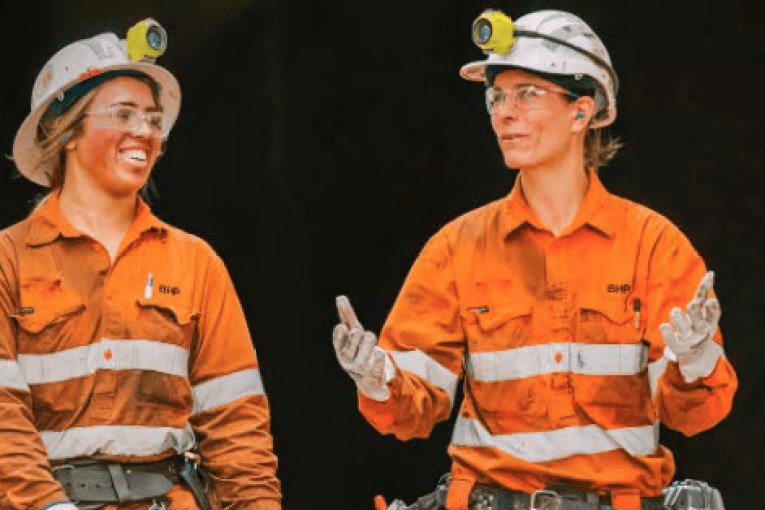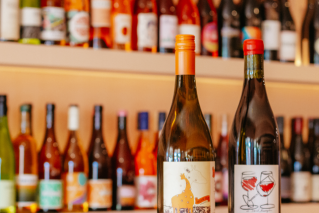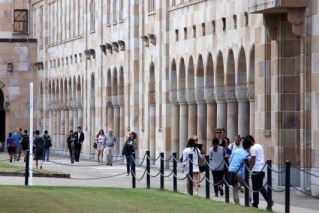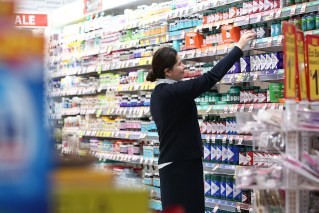Premier will open borders to some states, but gates remain slammed shut on Victoria
Queensland’s border will be strengthened to cope with threat from Victoria but travellers from other states will be allowed from July 10, the Premier announced today.
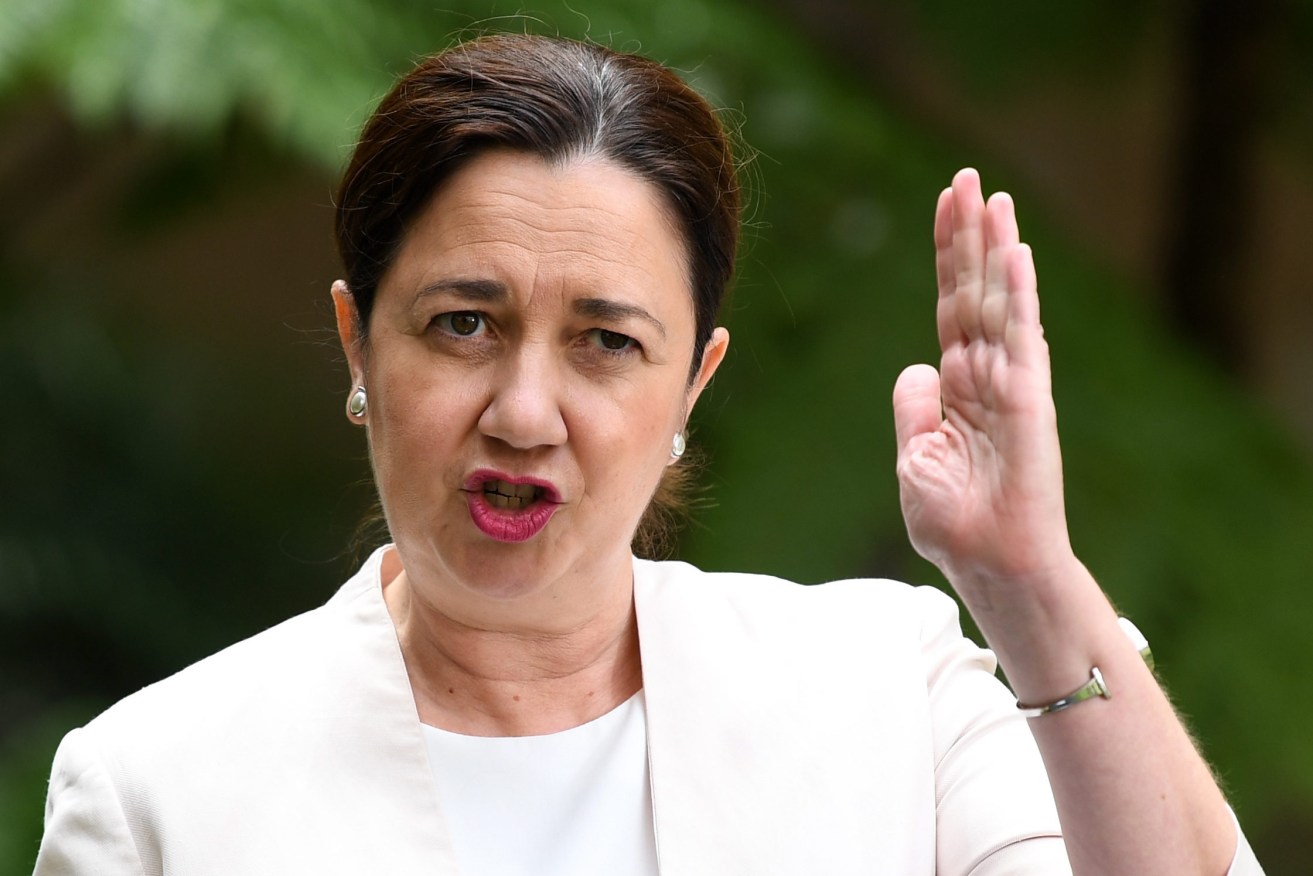
Queensland Premier Annastacia Palaszczuk. (Photo: AAP Image/Dan Peled)
As Victoria reported another 64 cases of COVID-19, and contemplated an unprecedented community lockdown to stop the outbreaks, Queensland’s Chief Health Officer Dr Jeannette Young was today advising the State Government on a new way forward.
Queensland again recorded no new cases of COVID-19 overnight, with only two of the 1067 cases to date still active. About 365,000 tests have been conducted since the pandemic began.
While Queensland’s roadmap had tentatively given July 10 as the date for all border restrictions to be lifted, Premier Annastacia Palaszczuk and Deputy Premier Steven Miles agreed with Young that the threat posed by Victoria was too great.
“Let me state from the outset: Queensland has very large concerns about the state of Victoria,” Palaszczuk told reporters this afternoon.
Instead of lifting all border restrictions, anyone contemplating travel to Queensland from Victoria will face mandatory 14-day quarantine, expected to act as a deterrent. From July 10, travellers from other states will be required to sign a statutory declaration that they have not been in Victoria recently or risk a $4000 fine.
Palaszczuk said she was concerned by cross border travel during the upcoming NSW and Victorian school holidays and would not hesitate to close the border to other states if the situation changed.
In a preview to Queensland’s decision, South Australian Premier Steven Marshall had earlier confirmed the Victorian situation meant his state could not lift border restrictions next month as intended.
“We apologise to many people who have had to make changes because of our change of the date of 20 July but our number-one priority is the health, safety and welfare of all South Australians,” Marshall said.
The decisions by South Australia and Queensland may curtail football competitions, and dash any hopes of a local tourism bubble, and could prompt tense political discussions at the next National Cabinet meeting.
Palaszczuk said other intrastate restrictions on businesses, outdoor gatherings and other events would be eased further from Friday to create another economic boost.
Palaszczuk has withstood criticism of the policy from Opposition leader Deb Frecklington and her Liberal counterpart in NSW, Premier Gladys Berejiklian, whose state is now deemed less of a threat to Queensland due to its falling infection rate.
In the wake of the Ruby Princess cruise ship debacle, in which sick passengers were allowed to disembark and spread the coronavirus to their home communities, Berejiklian today pointed out NSW had dealt with being a major gateway and drawcard for travellers.
“Ironically we’ve already had people from Queensland and WA bring the disease to New South Wales, so we’ve already experienced that level of interstate transmission, if you like, and we’ve dealt with it,” Berejiklian said today.
“That’s why I say to all the other states, we’ve welcomed all the overseas travellers that live in other states, we’ve even welcomed people who’ve come across your own borders to New South Wales, who had the disease, and we’ve managed that.”
However, Berejiklian was quick to urge anyone from Victorian hotspots not to attempt travel to NSW.
Prime Minister Scott Morrison has also singled out Queensland for criticism, saying the state’s Labor government was impeding Australia’s business, tourism and education recovery. On Monday, Morrison declared “the people who would be the biggest losers from that border not opening up are the people of Queensland”.
Today, Palaszczuk appeared to suggest that if Morrison had taken a different approach, and Victoria followed Queensland’s lead with its border, Australia would have been better off.
“These border wars have got to stop,” Palaszczuk said.
“Frankly, I’m a bit sick and tired that Queensland has been singled out.”
Initially, at least, the restrictions may have helped prevent COVID-19 spreading across the border into NSW, given the Gold Coast at the time had evidence of community transmission whereas there were very few cases to the south.
On March 22, Palaszczuk controversially tweeted the “breaking” decision by Cabinet to restrict border crossings from midnight March 24. The government later tightened the restrictions, and imposed tougher quarantine requirements, most recently in relation to COVID-19 “hotspots” in Victoria.
In the first two months of border restrictions, Queensland police intercepted 212,459 vehicles, turned around 2,629, and directed 9491 road travellers into quarantine.
Palaszczuk courted controversy again when she speculated that the rate of transmission in NSW and Victoria might see the border restrictions remain in place until September. The Premier later drew that back into line with the July 10 schedule, more in keeping with other states and as NSW flattened its curve of infection.
